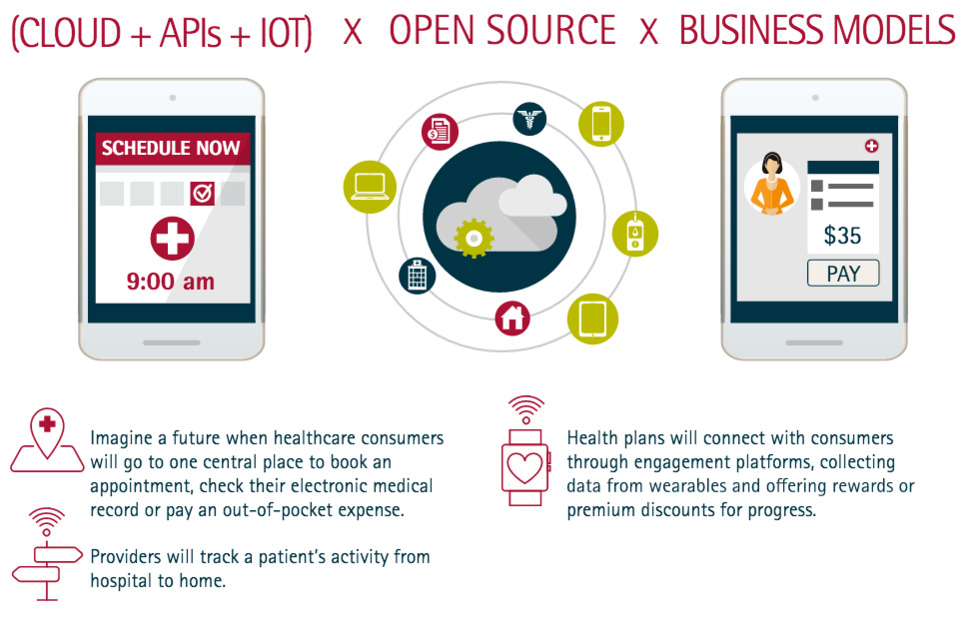Ecosystems are the new bedrock of digital healthcare.
Platforms are enabling smart cities, connected machines, robust customer analytics and more. In healthcare, they provide the underlying technology that can make healthcare experiences more connected. Some companies have taken the plunge into platforms, while others are just beginning to use digital technologies and cloud foundations as a first step into the platform world.
Platform potential
The power of platforms should not be underestimated. More than ever before, they can link the entire healthcare ecosystem—from patients to providers to health plans. Imagine a future when healthcare consumers will go to one central place to book an appointment, check their electronic medical record or pay an out-of-pocket expense. Providers will track a patient’s activity from hospital to home. Upon discharge, data from a patient’s blood pressure monitor, coupled with analytics, could indicate a pending complication and give providers ample time to take corrective action.
Health plans will use platforms to connect with consumers in more meaningful ways. For example, some are using engagement platforms, such as Rally Health and Welltok, to collect data from wearables and give rewards or premium discounts for progress.
Platform privileges
Platforms can help reduce out-of-pocket costs by supporting healthier lifestyles among consumers. Furthermore, they make previously difficult to access services more mainstream. Take for instance leading health plans that are making wellness programs available to the masses because platforms make it easy and cost-effective to scale such offerings and integrate into existing experiences.



 Your new post is loading...
Your new post is loading...











From disrupted care to #ehealth #integratedcare #iot and #platforms: see the strategic roadmap for health as imagined by Accenture: a scenario to think about! #pharma are you "in" ?